Cu Lao Xanh, which is also known as Van Phi island, is a small island near Xuan Dai Bay in Phu Yen province. However, its administrative boundary belongs to Nhon Chau commune, Quy Nhon City.
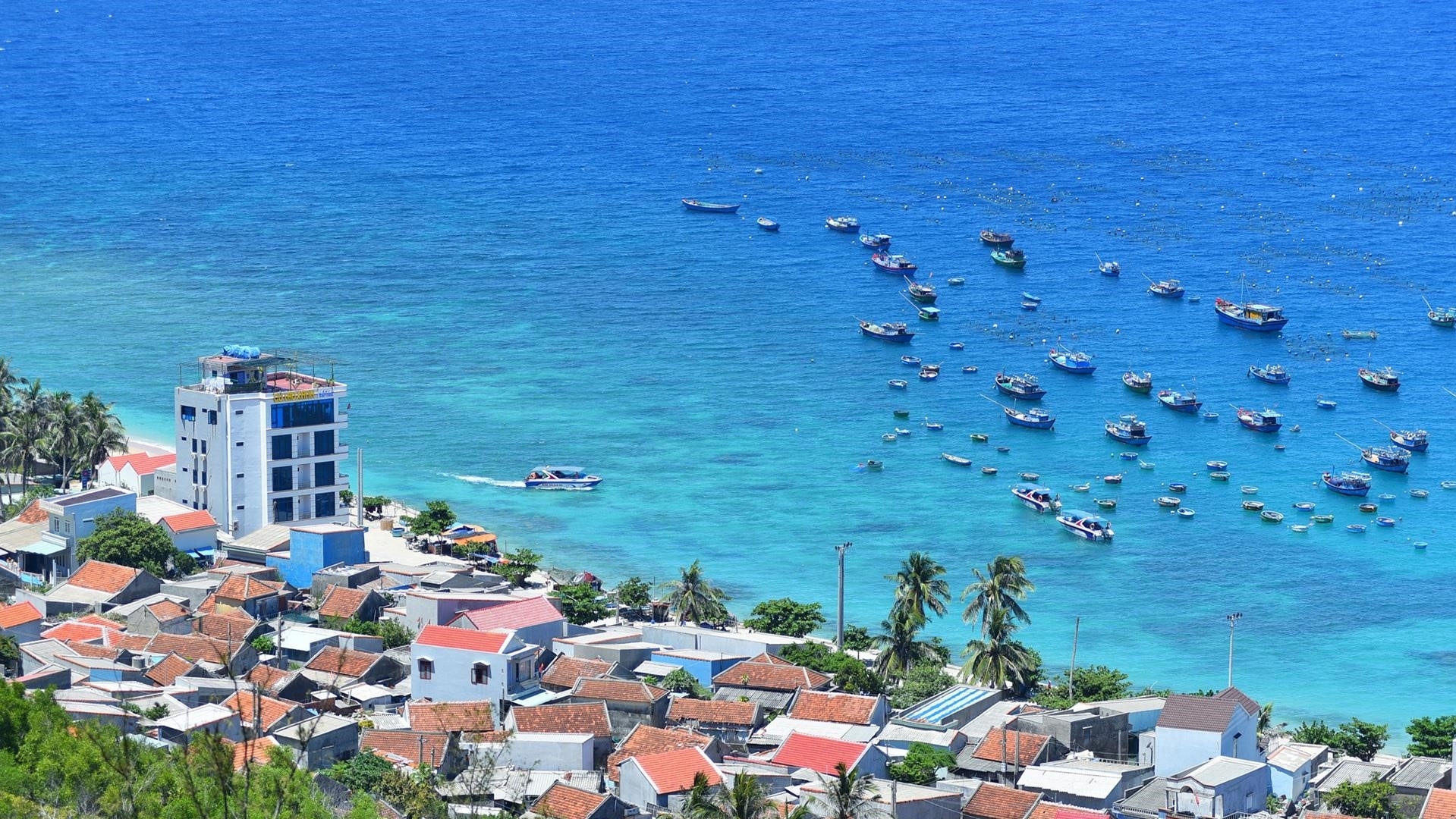 |
| Cu Lao Xanh, which is also known as Van Phi island, is a small island near Xuan Dai Bay in Phu Yen province. However, its administrative boundary belongs to Nhon Chau commune, Quy Nhon City. |
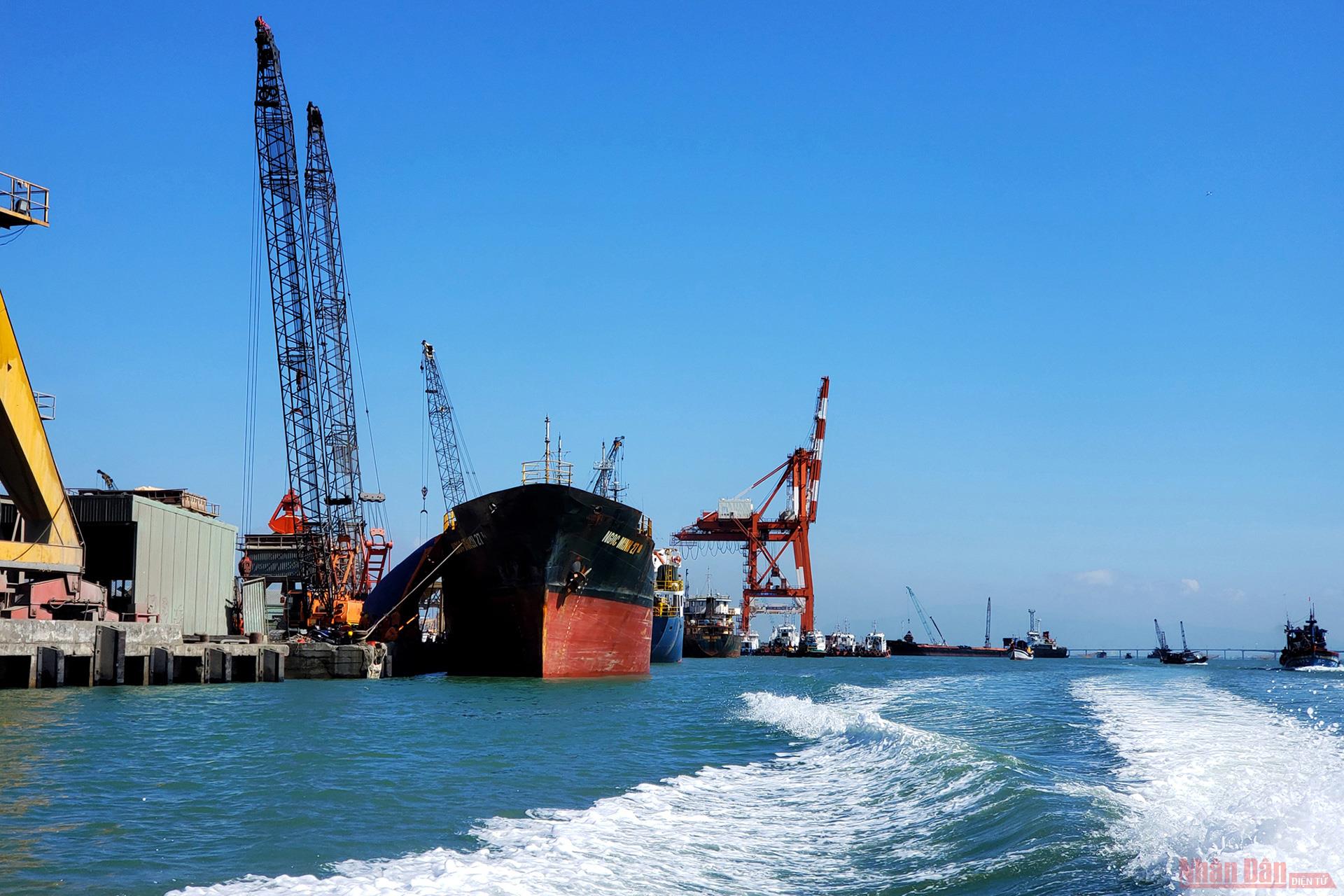
There are many ways to access Cu Lao Xanh, including hiring fishermen’s boats in Vinh Hoa village, Song Cau town, Phu Yen province, and in Bai Xep in Ghenh Rang ward, Quy Nhon city. The most popular way is to start from Ham Tu port which is about 1km from Quy Nhon city’s centre. Visitors can take a high-speed canoe with the one-way price of VND150,000 – VND200,000 or a wooden boat with a price of VND30,000 per day.

The island has an area of 365 hectares and a population of around 2,300 across three villages. It is almost completely isolated by the ocean, about 20km from Quy Nhon city and 6km from Song Cau town (Phu Yen province).
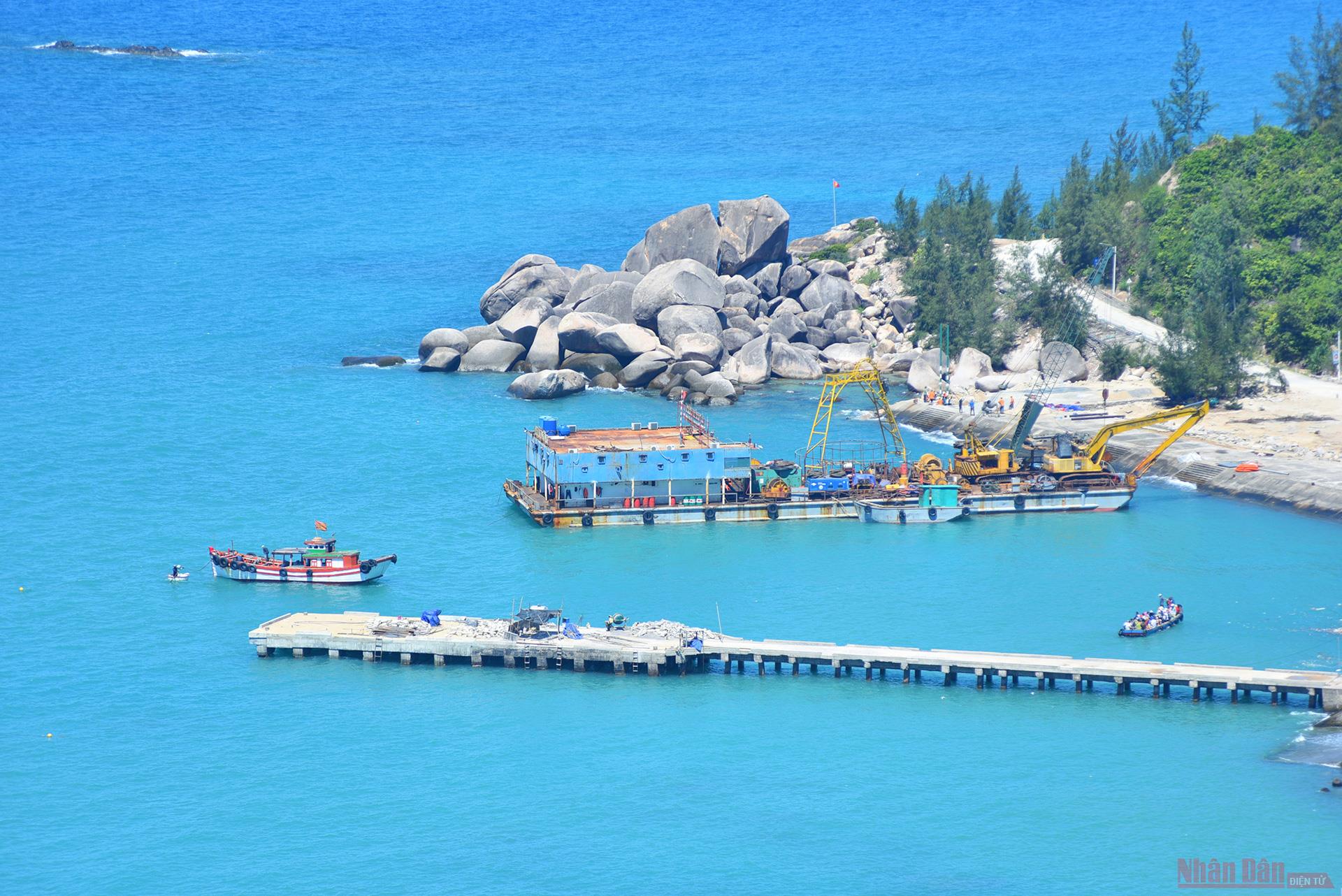
Cu Lao Xanh island impresses visitors thanks to its beauty with the “greens” of both sky, water and vegetation.

Visitors should travel to the island between March and August.
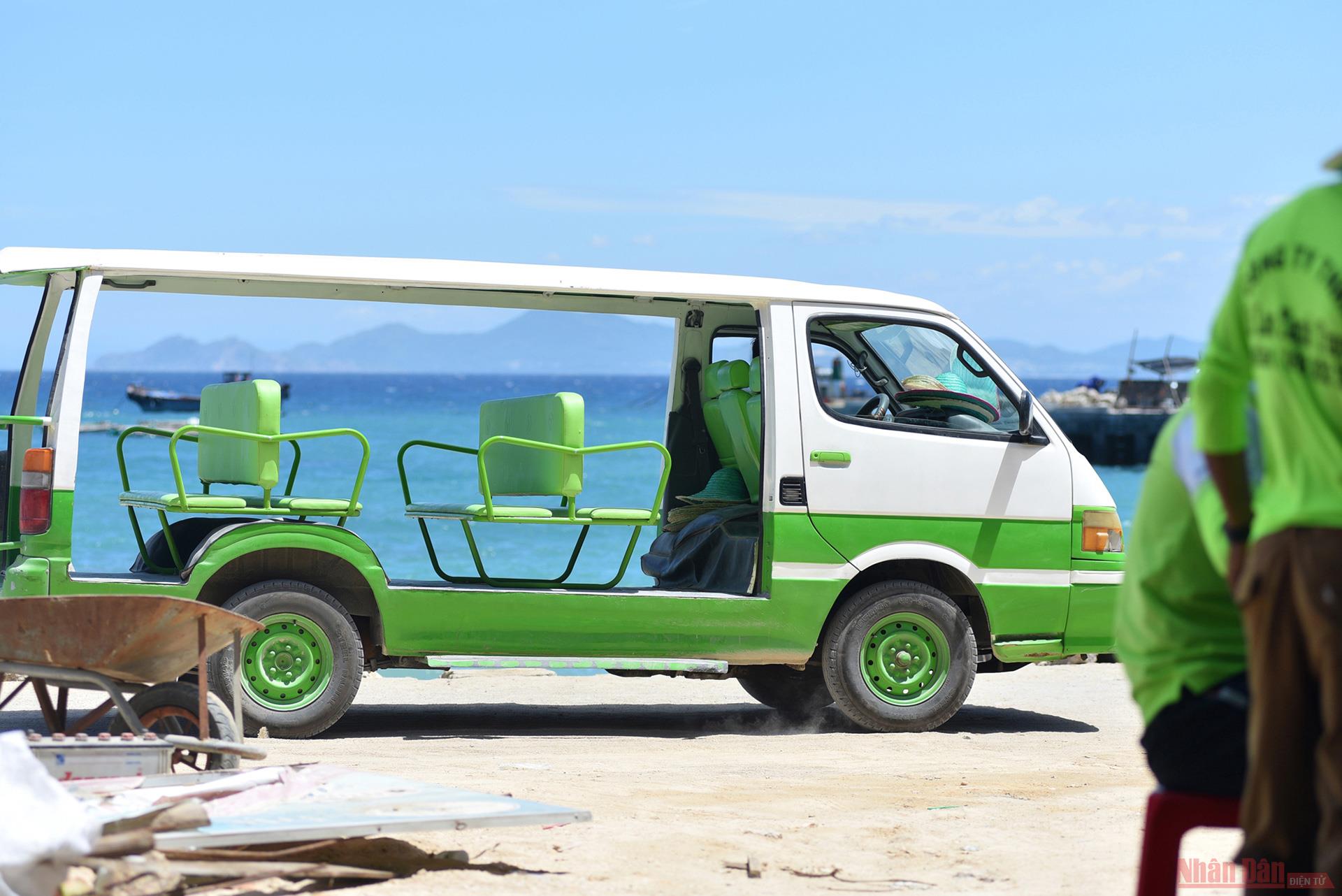
The main means of transportation on the island are tramcars and motorbikes.

Visitors can take a tour around the island by tram or motorbike as its roads have been paved.
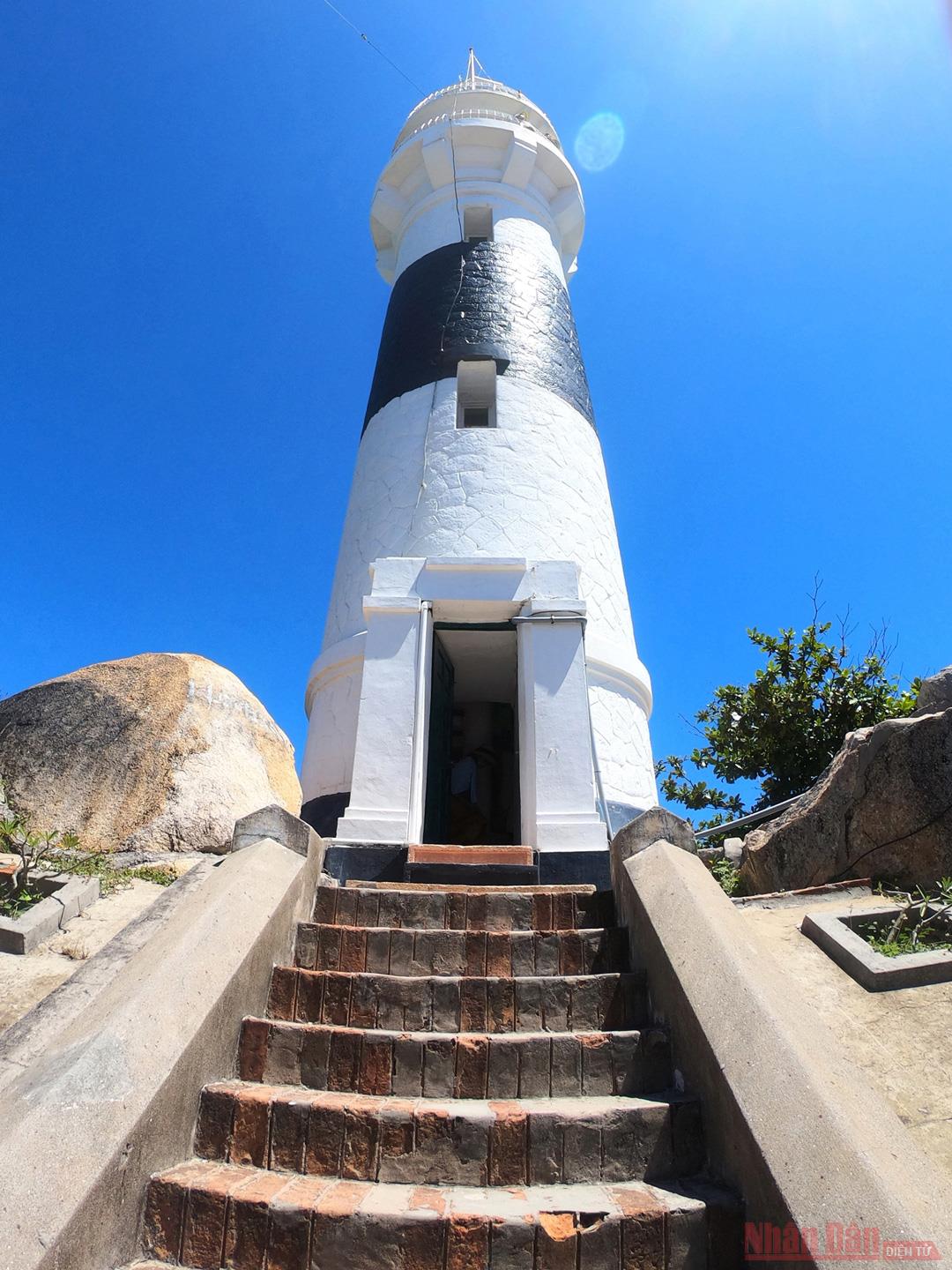
The first destination is Cu Lao Xanh lighthouse which was built by the French over 100 years ago. It has a height of 119m above sea level and its light can reach as far as 50km.
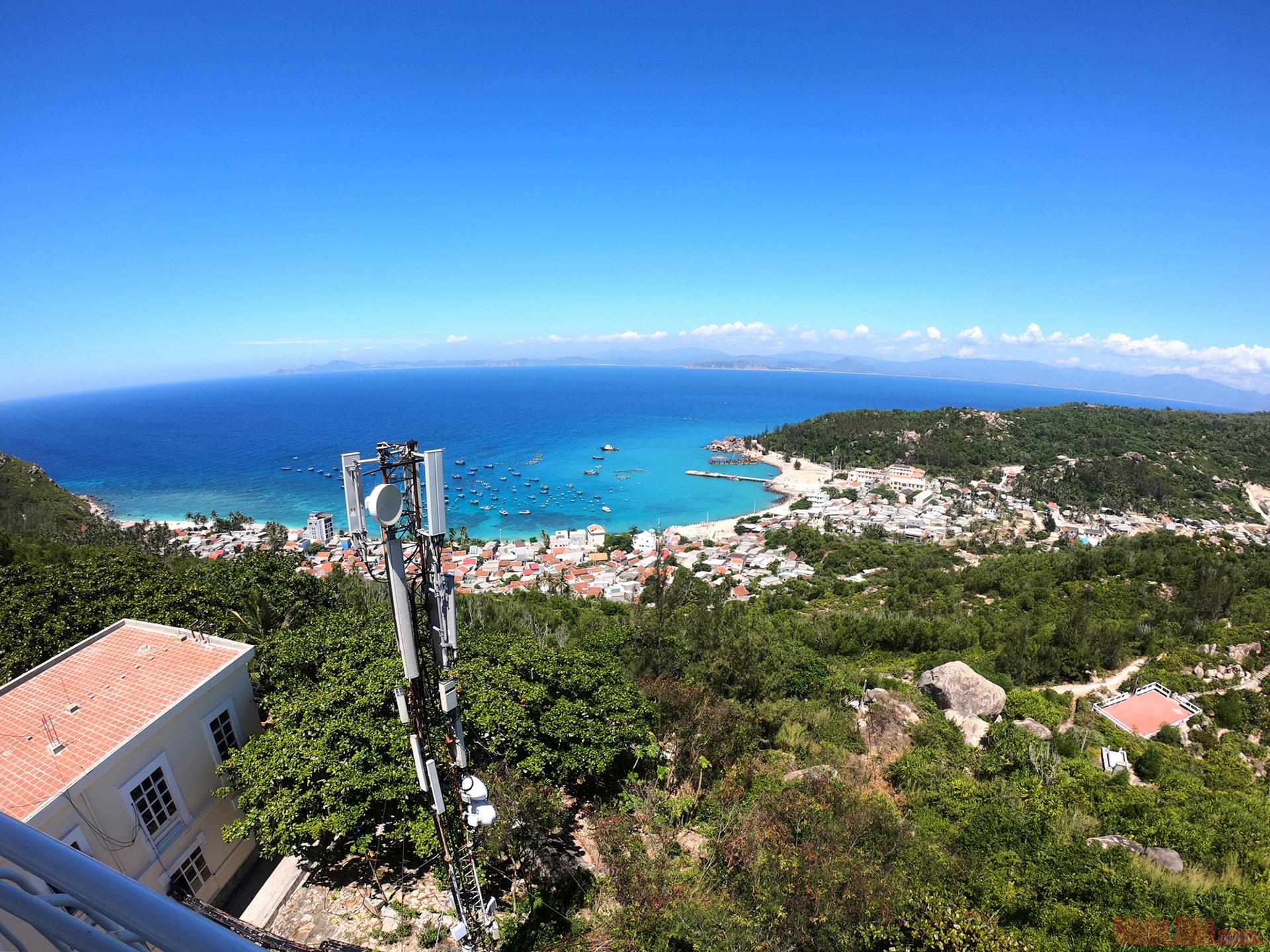
It takes about 20 minutes for visitors to navigate a trail to the lighthouse station and climb the 32 spiral staircase steps to reach its top.
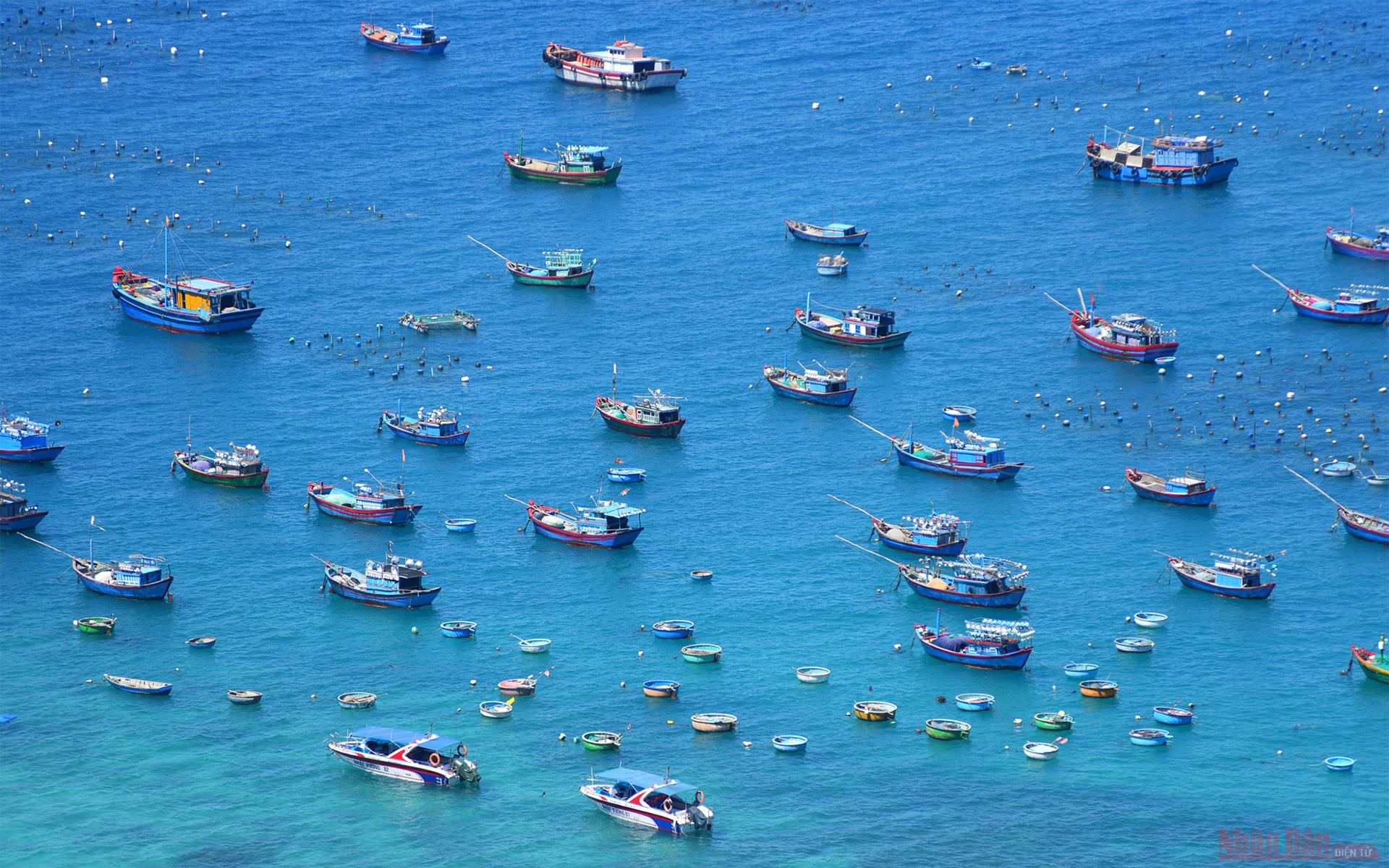
Standing at the lighthouse, visitors can contemplate the overview of Cu Lao Xanh island, from the pier, residential area, fishing village, flagpole and Thao Nguyen rock bank to its scenery of bustling boats.

A youth flagpole (also called national flagpole) is opposite to the hundred-year-old lighthouse. It was built by Ho Chi Minh Communist Youth Union Executive Committee and Vietnam Students’ Association in August 2015, contributing to affirming the country’s sovereignty over seas and islands.
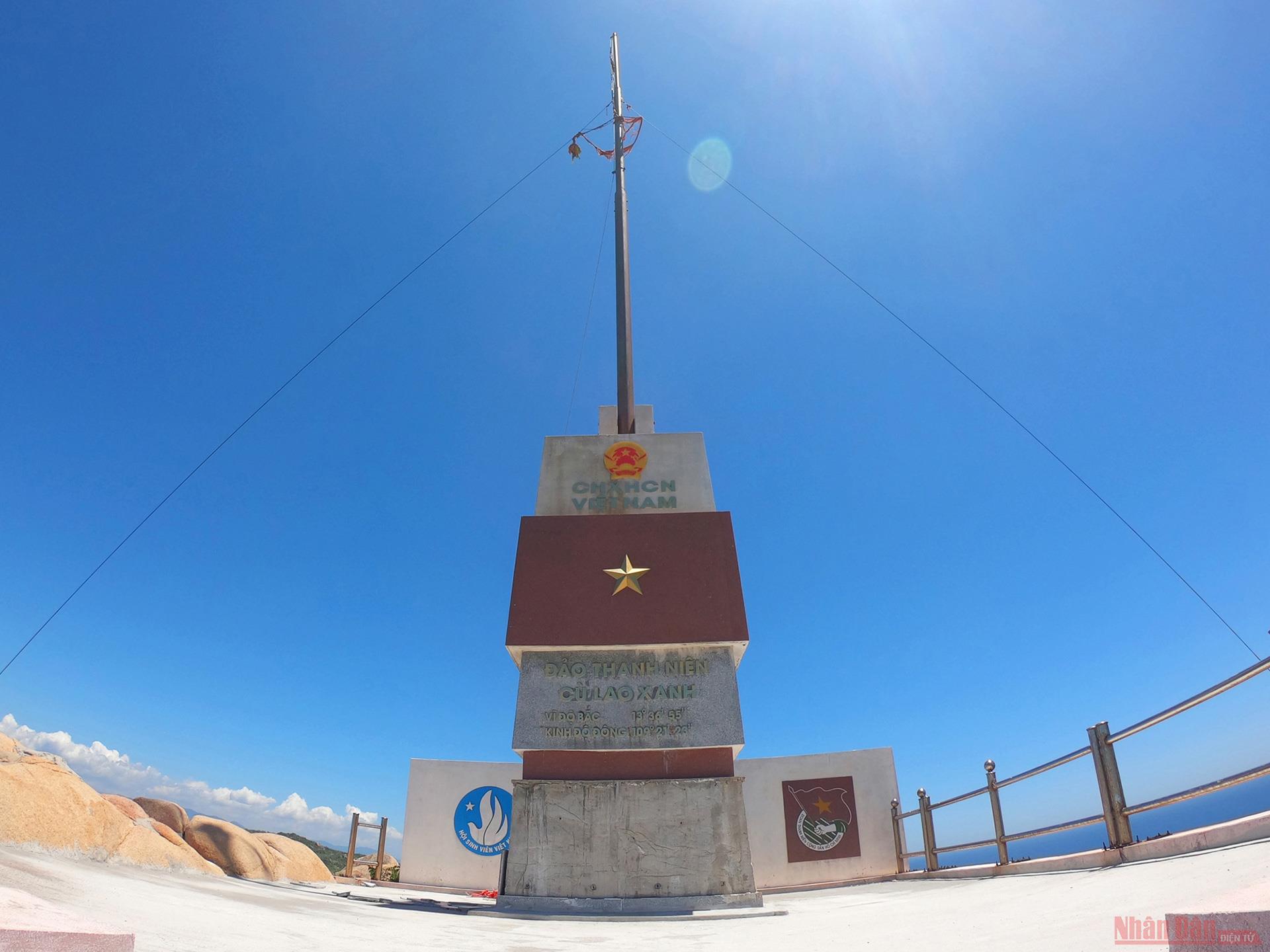
The flagpole is 22.66m high and was inscribed with the island’s name, longitude and latitude. There are two bas-relief with the logo of Ho Chi Minh Communist Youth Union and Vietnam Students’ Association.
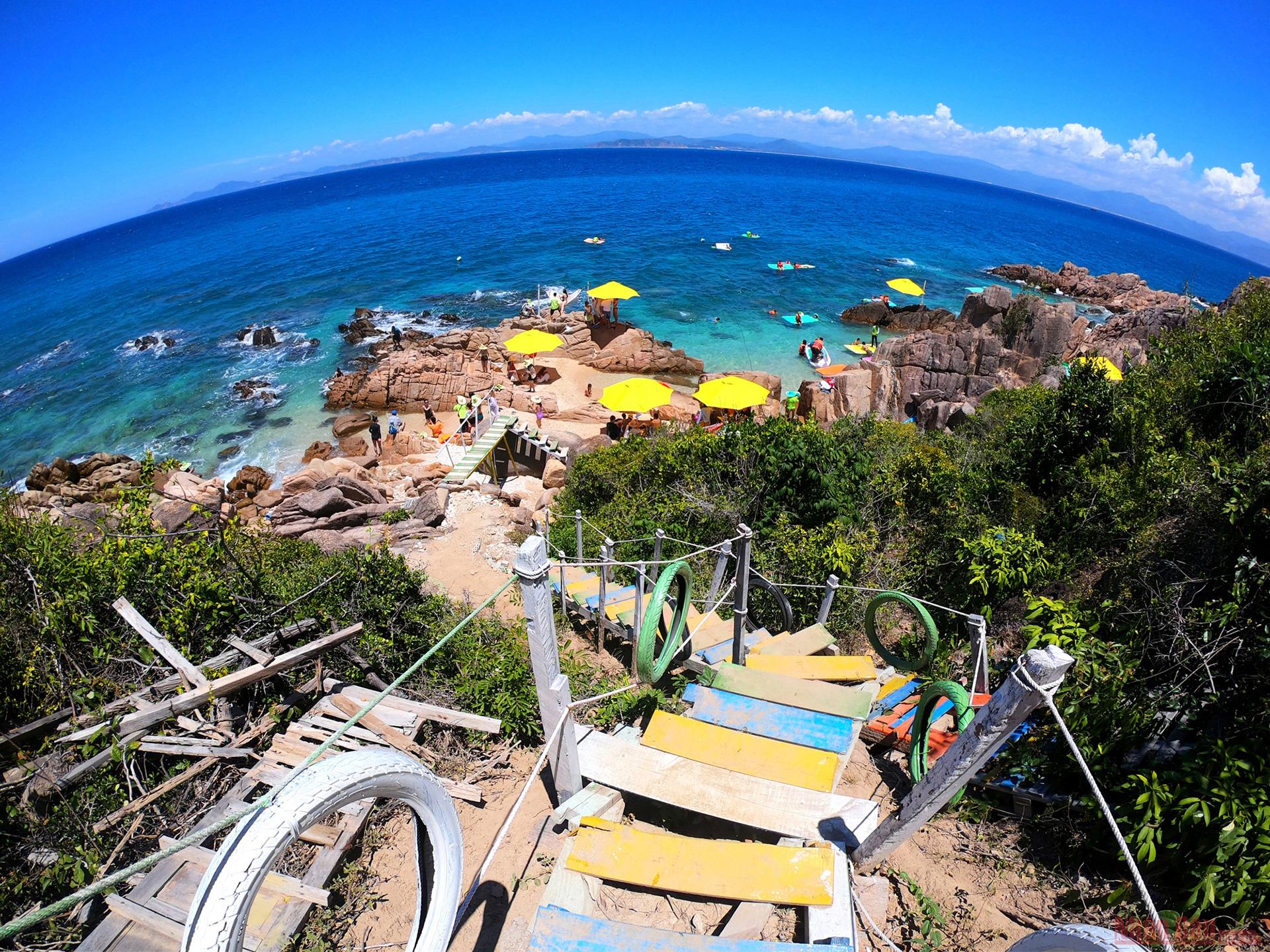
Although the beaches on the island are small, the sea water is pure and blue like sapphire; meanwhile, the sand is smooth and soft. The island’s rescue teams and tour guides are every professional and enthusiastic.
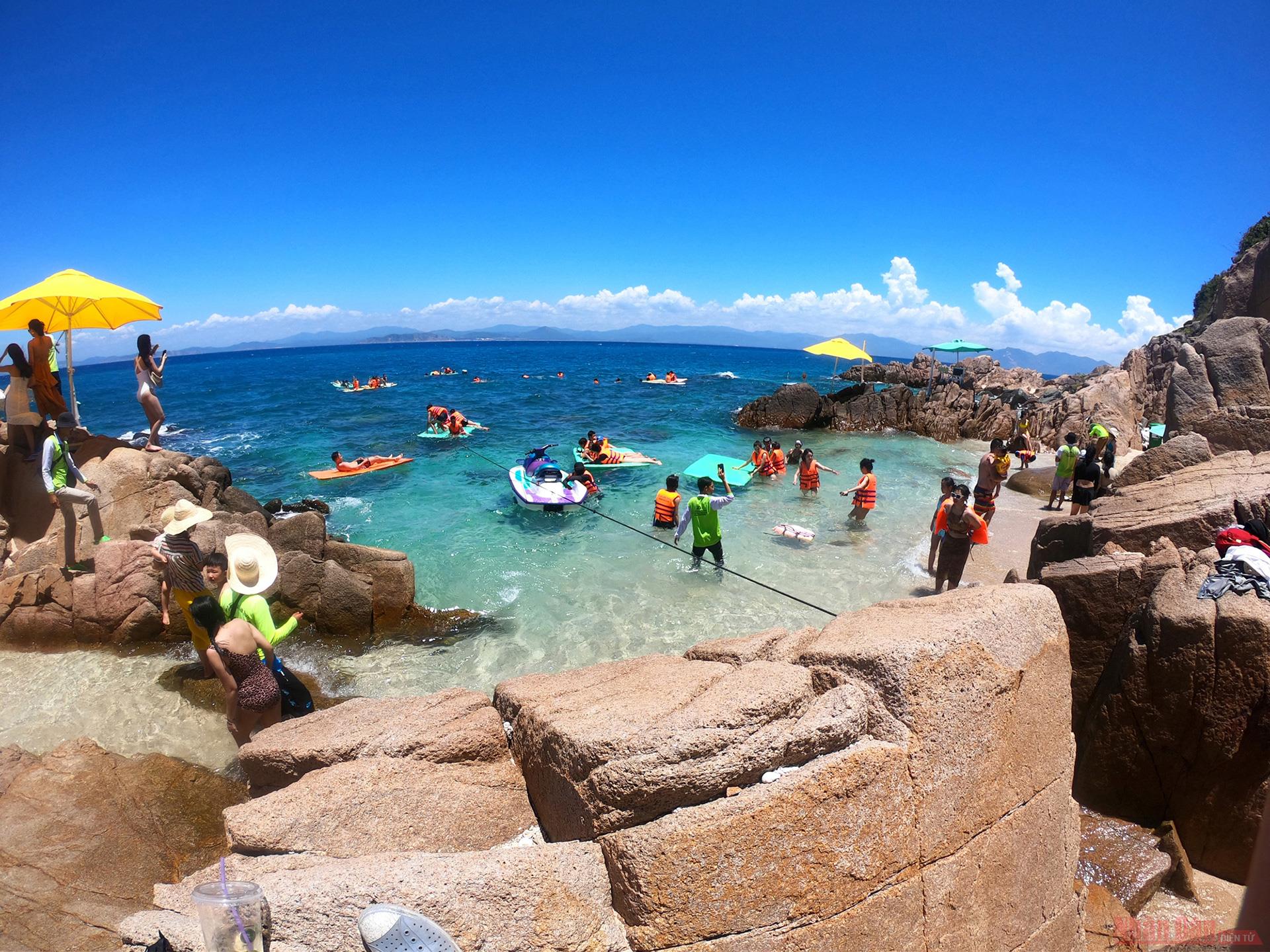
The most beautiful beaches are Bai Nho, Bai Gala, Bai Dong and Bai Nam.
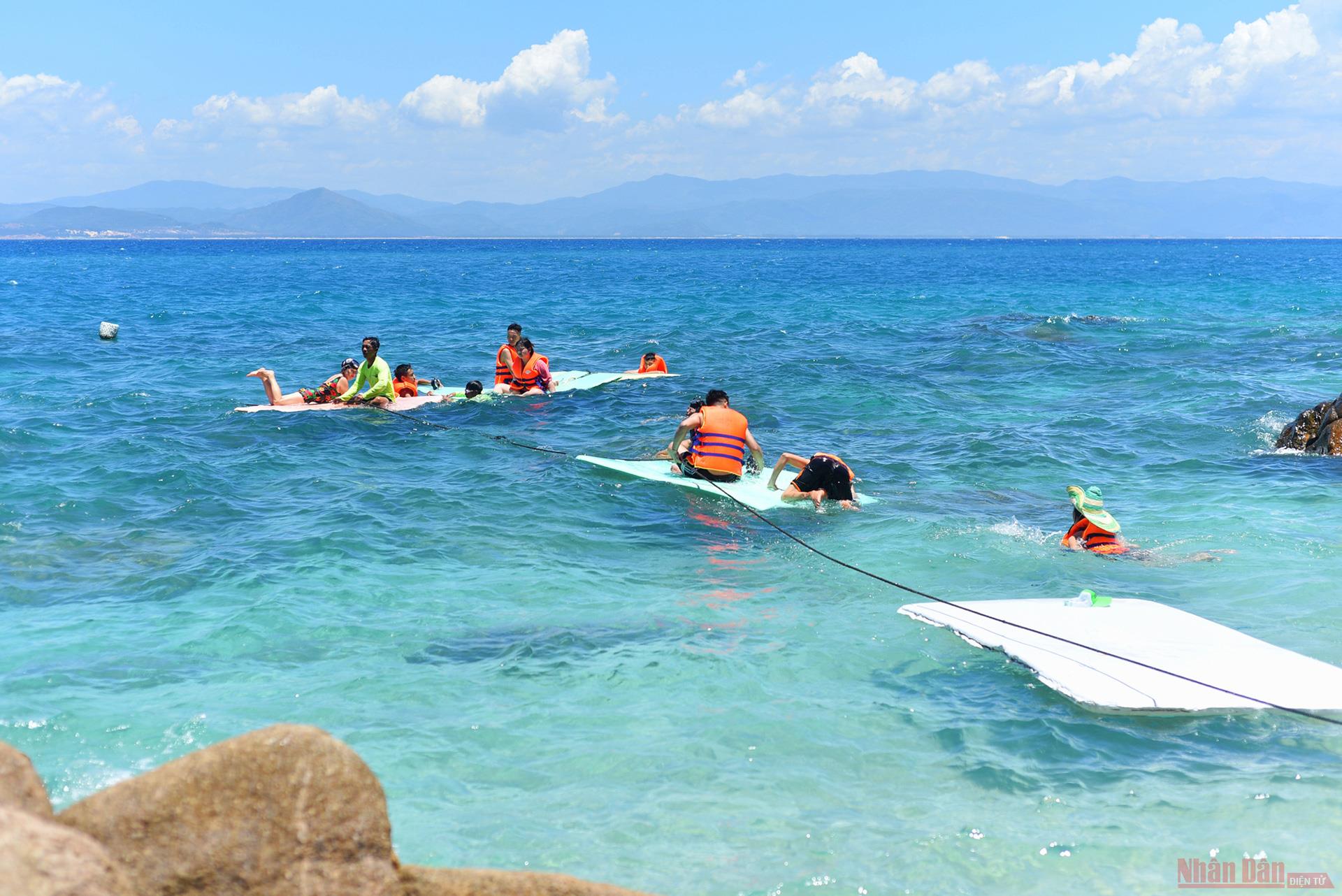
In addition to traditional activities such as swimming, snorkeling and watching coral, visitors can join thrilling games on the sea: riding a water motorbike and lying on a floating buoy.

There is a huge rocky forest called the Thao Nguyen rock bank, one of many attractive destinations on Cu Lao Xanh island.
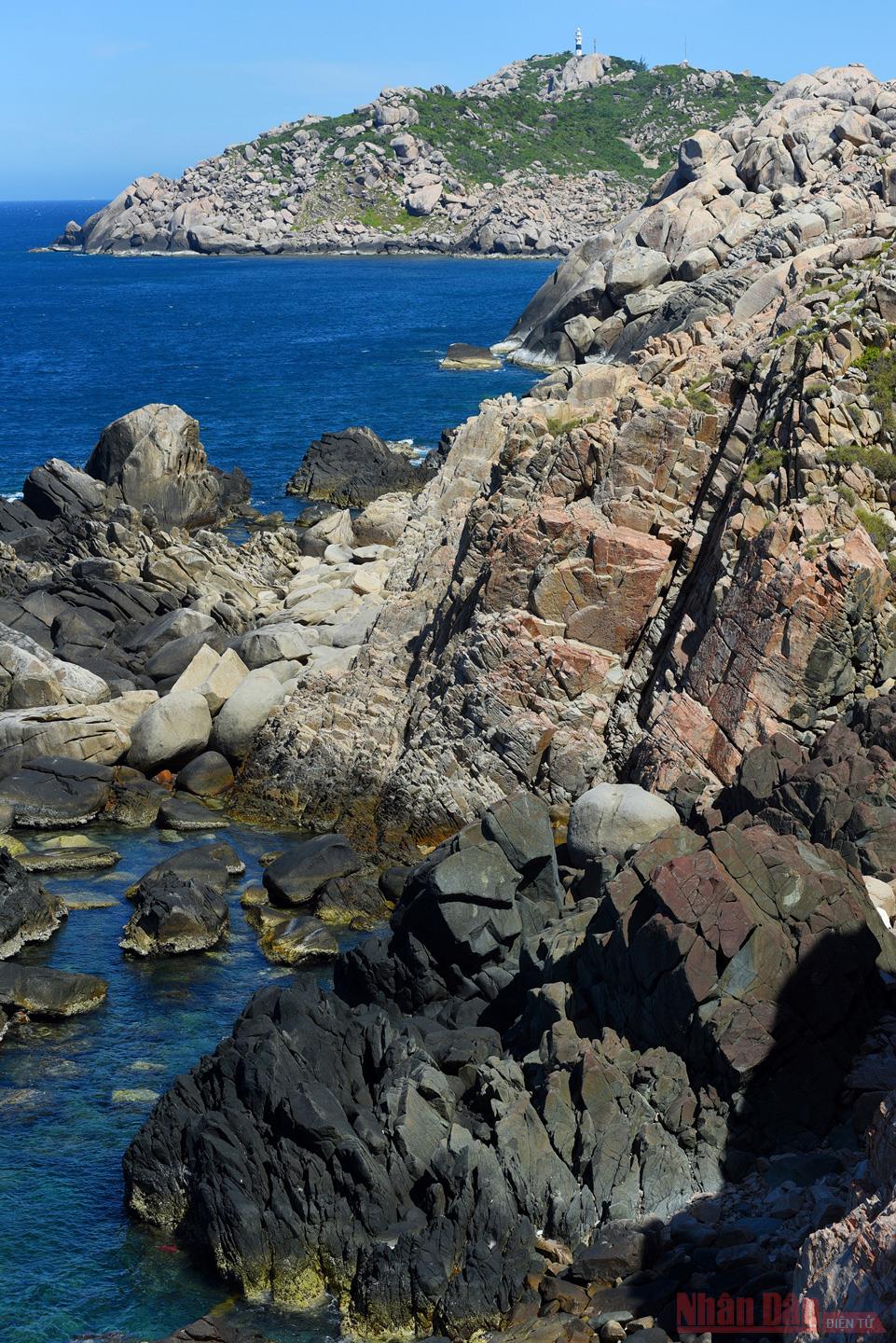
The rock bank is very impressive thanks to natural forests and many different shapes and colours.

Local people in Cu Lao Xanh island prepare a meal with eight seafood dishes to serve their visitors. They make tours and provide tourist services by themselves.
Nhan Dan